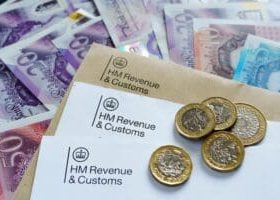NEW YORK — Sam Bankman-Fried, the founder and former chief executive officer of now-bankrupt crypto exchange FTX, attempted to distance himself from suggestion of fraud in his first public appearance since his company’s collapse stunned investors and left creditors facing losses totaling billions of dollars.
Speaking via video link at the New York Times’ Dealbook Summit with Andrew Ross Sorkin on Wednesday, Mr. Bankman-Fried said he did not knowingly commingle customer funds on FTX with funds at his proprietary trading firm, Alameda Research.
“I didn’t ever try to commit fraud,” Mr. Bankman-Fried said in the hour-long interview, adding that he doesn’t personally think he has any criminal liability.
The liquidity crunch at FTX came after Mr. Bankman-Fried secretly moved $10 billion of FTX customer funds to Alameda Research, Reuters reported, citing two people familiar with the matter. At least $1 billion in customer funds had vanished, the people said.
Mr. Bankman-Fried told Reuters in November the company did not “secretly transfer” but rather misread its “confusing internal labeling.”
FTX filed for bankruptcy and Mr. Bankman-Fried stepped down as chief executive on Nov. 11, after traders pulled $6 billion from the platform in three days and rival exchange Binance abandoned a rescue deal.
Mr. Bankman-Fried said he was speaking from the Bahamas and that the interview was against the advice of his lawyers. He was seen in the video link talking from a room, dressed in a black T-shirt and occasionally drinking from a mug.
The implosion of FTX marked a stunning fall from grace for the 30-year-old entrepreneur who rode a cryptocurrency boom to a net worth that Forbes pegged a year ago at $26.5 billion. After launching FTX in 2019, he became an influential political donor and pledged to donate most of his earnings to charities.
He said Wednesday that he now has “close to nothing” left and is down to one working credit card with “maybe $100,000 in that bank account.”
Since FTX filed for bankruptcy, Mr. Bankman-Fried has distanced himself from the image he projected in media interviews and on Capitol Hill, telling a Vox reporter his advocacy for a crypto regulatory framework was “just PR” and his discussions on ethics within the industry were at least partly a front.
WHAT HAPPENED
Mr. Bankman-Fried said that Alameda had built up a substantial position on FTX and that as digital asset prices plummeted this year, Alameda became increasingly more levered to the point of no return earlier this month.
“Realistically speaking, (there was) no ability for FTX to be able to liquidate that position and generate everything that was owed,” he said.
Asked about compliance, Mr. Bankman-Fried said his companies “completely failed” on risk management.
“There was no person who was chiefly in charge of positional risk of customers on FTX, and that feels pretty embarrassing in retrospect,” he said.
He added that he “wasn’t trying to commingle funds,” but said that when FTX didn’t have a bank account, some customers wired money to Alameda and were credited on FTX, which likely led to discrepancies.
Mr. Bankman-Fried stepped down as CEO of Alameda in October 2021, four years after founding the company, and ceded the role to Caroline Ellison and Sam Trabucco, who acted as co-CEOs until Trabucco departed the firm in August.
US AFFILIATES
Mr. Bankman-Fried said he was “confused” as to why FTX’s US entity is not processing customer withdrawals. Redemptions are currently paused for both US and international customers.
“To my knowledge all American customers and all American regulated businesses here are, I think at least in terms of client assets, are okay,” he said, adding that derivatives contracts at one of its US subsidiaries were “fully collateralized.” — Reuters








